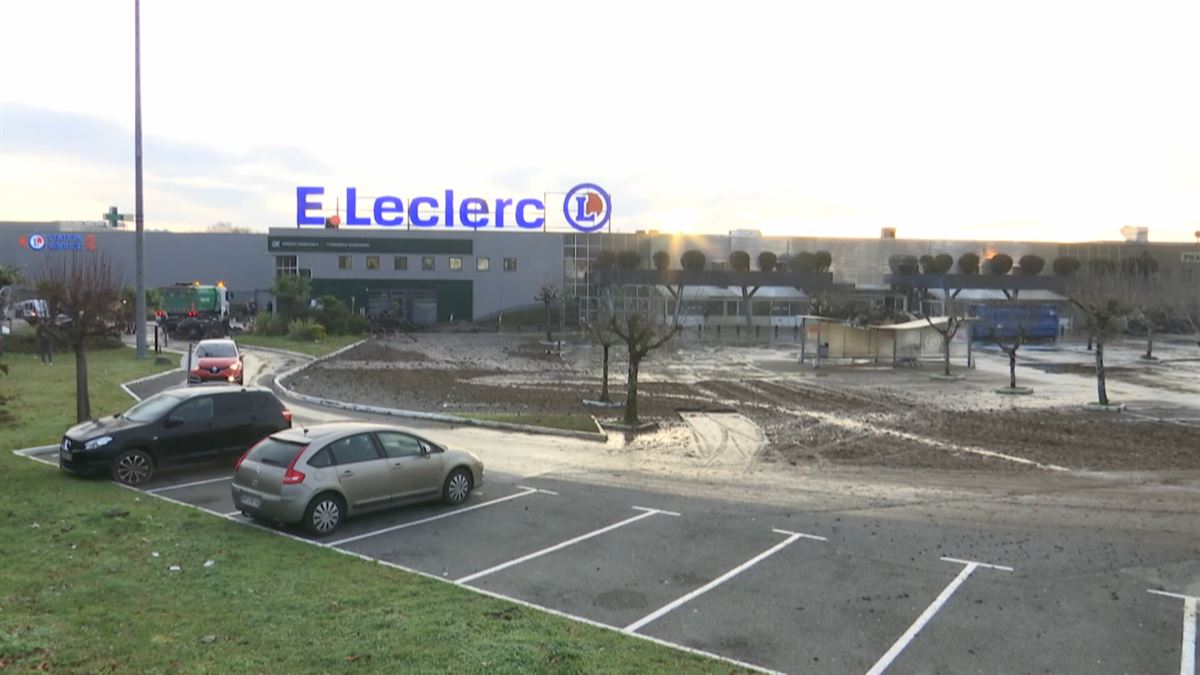The French government has promised “additional measures” to support the French countryside and has mobilized 15,000 police officers in response to the protests.
The National Federation of Agricultural Exploitation Unions (FNSEA) and the Young Farmers Association of the Greater Paris Basin have announced that access to Paris will be blocked “indefinitely” from Monday, January 29 at 2 p.m.
Farmers from 19 departments will position themselves at seven blocking points around the capital, along the roads giving access to Paris, as explained by the president of Young Farmers of the Ile-de-France region, Clément Torpier, in statements to the network. television station BFMTV. “All this will be organized safely and with respect for people, on the strategic axes of the highways,” he explained.
The newspaper Le Parisian has specifically mentioned the A1, A4, A5, A6, A12, A13 and A15 roads and there is speculation about the mobilization of around 500 tractors.
“We want clean, controlled and safe demonstrations. We are not here to completely hinder everything,” Torpier said. The goal “is not to harass the population, but to get answers from the government.”
The president of FDSEA Oise, Régis Desrumaux, has acknowledged that “they are going to hold the families hostage.” “We are going to prevent people from going to work. We are going to prevent appointments from being made. It’s sad, we all have families, it hurts my heart, but unfortunately we have to do it,” he argued.
Young Farmers national administrator Maxime Buizard explained on Saturday that the goal is “that no truck can deliver the capital and that they will last as long as it takes for the shortage to be felt and for us to be heard .”

French authorities will protect access to Paris
The French government convened a crisis cabinet on Sunday to prevent chaos from a possible blockade of Paris. In particular, the government wants to protect access to the international airports of Roissy and Orly via highways from cuts and avoid the closure of Rungis, the market that supplies a large part of the capital and its region.
For this reason, the Minister of the Interior, Gérald Darmanin, has ordered the mobilization of 15,000 police officers and gendarmes to prevent “any form of blockade” in the capital. The demonstrators’ modus operandi should be the same as in other actions, which involve setting up barricades using tractors and other agricultural vehicles.
Darmanin clarified on Sunday that the general slogan will be not to intervene in the blockades and clarified that one of the exceptions will be if trucks transporting foreign products are seized.
New measures in favor of farmers
Under pressure from the protests, the French government has promised new measures in favor of farmers within 48 hours and plans to renegotiate the end of mandatory set aside and restrictions on the access of Ukrainian products at the EU summit on Thursday.
“A number of things will be on the table within 48 hours,” Agriculture Minister Marc Fesneau said in an interview with France 2 on Monday morning.
Furthermore, the head of Agriculture has announced that he will go to Brussels himself to accompany Macron at the extraordinary European summit, in which the French president has decided to put the crisis in agriculture, and in particular wine growing and fallow land, on the agenda. to make. and imports from Ukraine.
Regarding the abolition of the compulsory set-aside of 4% of land, which should be applied this year, under the current rules of the common agricultural policy, he stressed that France wants “the decision to be taken this week” and noted that 22 out of 27 EU countries are in favour.
Regarding the import of agricultural products from Ukraine as if they came from another country in the European Union, something that was granted to Kiev to support it after the Russian invasion of February 2022, the French minister has indicated that this has “perverse effects” causes. and that Paris wants ‘a limit’ to the ‘disorganization’ it causes.
France hopes that these restrictions, which it has not yet provided many details, will affect chicken, eggs and sugar, the products that compete directly with the French.
Another point that the government considers important to meet farmers’ demands is to equate environmental obligations in France (for example on the use of pesticides and herbicides) with those in other EU countries.
Source: EITB
I’m Wayne Wickman, a professional journalist and author for Today Times Live. My specialty is covering global news and current events, offering readers a unique perspective on the world’s most pressing issues. I’m passionate about storytelling and helping people stay informed on the goings-on of our planet.



